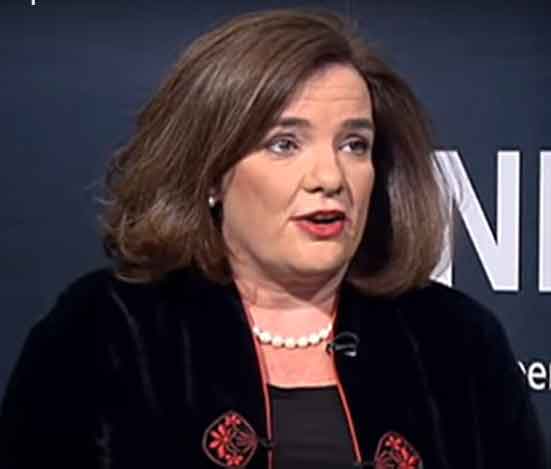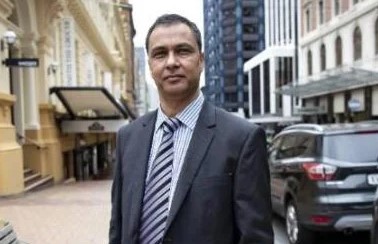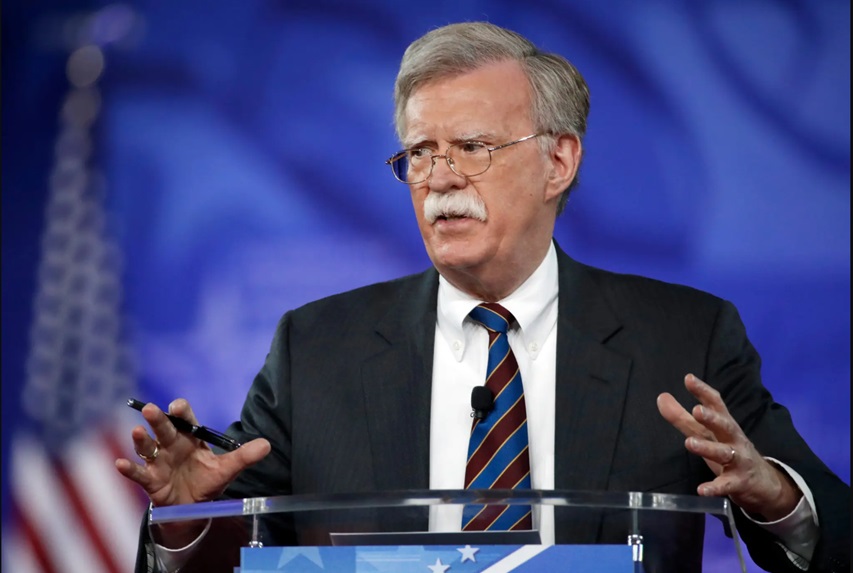
Johannesburg – One of the first things that President Joe Biden should have done upon entering office is to have reversed former president Donald Trump’s proclamation that the US recognises Moroccan sovereignty over Western Sahara. It was one of a long list of dangerous foreign policy moves Trump made with grave ramifications for the region and for US interests.
Not only has Trump increased tensions in the region, and made a return to armed conflict between Morocco and Western Sahara a renewed possibility, but he has gone against the policy of the African Union which recognises the Arab Sahrawi Democratic Republic as a sovereign member of the continental body.
Biden has indicated that he wants a strong relationship with the AU and even addressed the recent AU Summit, but this objective will be hard to realise unless he moves fast to reverse Trump’s declaration and return the US to its historic position of supporting a referendum in Western Sahara on self-determination as called for in UN Resolution 690 of 1991.

In a recent address to Chatham House, South Africa’s Minister of International Relations and Cooperation Naledi Pandor identified reversing the US’s recognition of Morocco as having sovereignty over Western Sahara “as the most urgent part of US policy towards Africa that needs to be addressed by the new President.” President Cyril Ramaphosa as Chair of the AU on January 24 called on Biden to reverse the “illegal recognition” of Moroccan sovereignty over Western Sahara.
Western Sahara is widely considered to be the last colony in Africa, and has been on the decolonisation agenda for over 55 years. The OAU and then the AU has pushed over the years for movement on the long promised referendum in which Sahrawis are to determine whether they choose independence or to be part of Morocco.
The Polisario Front abandoned its war against Morocco for a referendum, and now concerns are growing that the Polisario may choose to return to the battlefield if Trump’s deal is not reversed and pressure is not brought to bear on Morocco to finally hold the referendum they had agreed to.
Morocco has not only ignored its responsibility to hold the referendum, but has attempted to change the demography of the area by settling parts of its population in the occupied territory of Western Sahara. Its interest in maintaining its occupation is to control the rich resources of the territory which is the size of the UK.
Morocco wants to control the lucrative phosphates which comprise a quarter of all international reserves, and is a mineral of the future which cannot be replaced. It is used in agricultural production and in fertiliser. Western Sahara also has rich fisheries along its 1,110 km coastline, as well as oil, gas and gold that is yet to be exploited.
According to human rights organisations, Morocco has been violating the political and human rights of Sahrawis since 1975, but according to Human Rights Watch and Amnesty International, there has been a noticeable escalation in repression since Trump made his deal with Morocco of recognition of their sovereignty over Western Sahara in return for Morocco normalising relations with Israel.
Since November last year, human rights organisations and journalists have reported that Morocco is putting intense pressure on human rights activists and journalists in the occupied territory. Many have been put under house arrest and not allowed visitors.
Biden will have little support in the US Congress for maintaining Trump’s unilateral declaration, as for decades both Democrats and Republicans have supported self-determination for the people of Western Sahara.
One of the high ranking members of the Republican party Senator James Inhofe, who chairs the Armed Services Committee, has been a vocal supporter of the Sahrawis for decades, and said on December 10 last year that Trump had “traded away the rights of a voiceless people.”
John Bolton, Trump’s former National Security Adviser, has said that he was in the Oval Office on May 1, 2019, when Senator Inhofe explained to Trump his support for a referendum in Western Sahara. Trump responded saying that he had never heard of Western Sahara to which Inhofe replied, “We spoke before but you weren’t listening.”
According to Bolton, Trump had later become irate that Inhofe would not accede to amendments that the President wanted in the annual defence authority bill, such as repealing Section 230 of the Communications Decency Act, which shields social media platforms from liability for what they publish. Advisers had persuaded Trump to “stiff” Inhofe on Western Sahara in retaliation.
Bolton has argued, “To him (Trump), everything is a potential deal, viewed in very narrow terms through the attention span of a fruit fly.” Trump’s sudden announcement on Western Sahara, a place he claimed to have never heard of in 2019, is typical of his transactional approach.
Trump added to his nonsensical approach when he responded to criticism of his policy about turn by saying: “Morocco recognised the US in 1977, it is thus fitting that we recognise their sovereignty over Western Sahara.”
Former US Secretary of State James Baker, who was also the UN Secretary General’s Envoy for Western Sahara from 1997-2004, has said that Trump’s recognition of Moroccan sovereignty over Western Sahara is a serious blow to diplomacy and international law. Baker condemned Trump’s abandonment of the US’s commitment to the principle of self-determination.
Christopher Ross, a veteran US diplomat and a Democrat, who was also a former UN Envoy to Western Sahara has been scathing in his criticism of Trump’s decision saying, “The sovereignty of Western Sahara does not belong to Trump or Morocco. … It is a dangerous decision that will negatively affect the stability of the region.”
The oldest member of the US Senate, Democrat Patrick Leahy has pleaded with Biden to reverse Trump’s decision, saying “After losing his own bid for re-election, President Trump cannot by ‘proclamation’ negate international law or the rights of the people of Western Sahara. The Sahrawi people are entitled to what they have long been promised – a free and fair vote on self-determination.
Biden will now have to choose whether he will abide by the well established tradition of US policy on Western Sahara and declared respect for international law, especially considering that the US has been the pen holder of all resolutions on Western Sahara and self-determination, or whether he will allow Trump’s disrespect for international law to be upheld.
Unless Trump’s position is immediately reversed, Biden may find himself losing support within his own party, among key Republicans, as well as the 80 countries which recognise the Sahrawi Arab Democratic Republic, many of them in Africa.
* Shannon Ebrahim is Independent Media’s Foreign Editor.
shannon.ebrahim@inl.co.za









